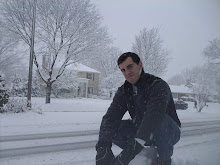Never in my life have I been close to considering myself interested in the Civil War. Though I have seen parts of documentaries on the subject, studied it in school and seen such movie classics as Gettysburg, I nonetheless have always treated the subject with mild indifference. That is until just a week ago when I was introduced to a book called Confederates in the Attic by Tony Horwitz. I will confess that at first I was much more interested in the person who gave me the book than the book itself. Well, I still am, but the fact that this book made me more than once tune out something this wonderful girl was trying to tell me indicates that this book is, in fact, great.
The novel slash collection of anecdotes follows the resurgence of an childhood interest in the Civil War by the author. In his attempts to understand the war Horwitz make a pilgrimage across the mostly hidden Civil War landscape of the South, leaving no stone (or nutcase) unturned in his quest to get all sides of the story. Along the way he meets a plethora of wacky people (of such diverse views that, put all in one place you might have a bloodbath on your hands). The most entertaining to me was a period rusher (re-enactor is a taboo word) who spends his time force marching in threadbare unwashed dirty grays, eating hardtack, and converting others (even the author somewhat) to his "hardcore" anachronistic ways.
The books romps through the paradoxes and conundrums that plague our nation, at the same time explaining our Modern quasi-obsession for the war. In digging up the past we see the same issues (if not always the reasons for them) in this all American topsy turvy past, where Jews and Blacks had fought for the South, families waged war, prisoners Americans both were mistreated by their own, and each side fought or reconciled in the oddest places during and post bellum.
I will not try to explain the book at depth, I lack the power. I will simply say that so many modern issues of race relations, education, and our own conception of history, all trace back to the overabundance of ideas, prejudices, hopes and motivations, that collided at that five year or so intersection so confused that still some call it the Civil War, some the War for Southern Independence.
The book left me saddened, but pensive, it still has me thinking of a myriad of things days later. This is not just because of all sorts of intolerance and bigotry it revealed. It also reminded me me that just as in the war, men and women with mutual respect and deference may even somehow find themselves at opposite ends of interminable irreconcilable views.
Subscribe to:
Post Comments (Atom)

No comments:
Post a Comment